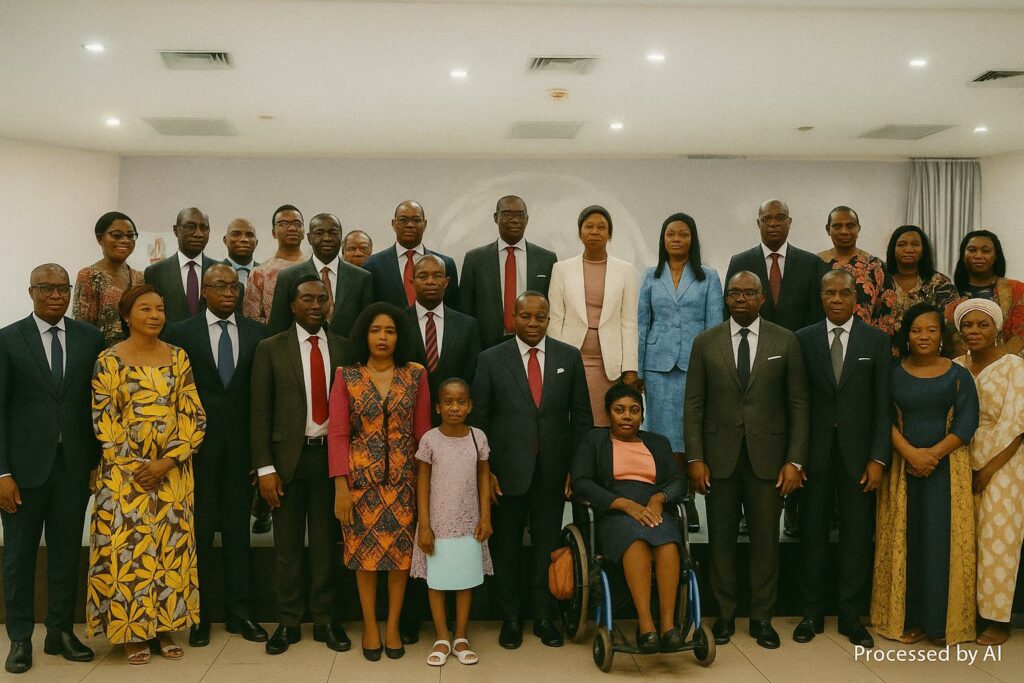Women at the Core of a Science-Led Development Vision
When Minister of Scientific Research and Technological Innovation Rigobert Maboundou took the podium in Brazzaville on 30 July, his message was concise yet strategically resonant: supporting women in research and entrepreneurial arenas is no longer a social courtesy, it is an economic imperative. By pledging structured assistance to female and youth-driven initiatives, the minister echoed Article 15 of the 2022 national development plan, which identifies inclusive innovation as a pillar of long-term competitiveness (Government of Congo 2022).
That declaration coincided with the fifth “Mbongui de la Femme Africaine”, a platform whose very name—Mbongui, the traditional gathering circle—symbolises communal problem-solving. This year’s theme, “African Women, Pillars of Sustainable Development and Catalysts of Innovation”, dovetails with Agenda 2063 of the African Union, where gender parity is framed as a driver of continental sovereignty (African Union 2021).
From Hackathon Floors to Citizen Tribunals
Concrete mechanisms accompany the rhetoric. A one-hundred-percent female hackathon assembled twenty-two aspiring founders who, over forty-eight hours, reshaped prototypes ranging from agro-tech traceability apps to solar-powered cold chains. According to the organising NGO, Elite Women’s Club, at least eight of those projects will enter an incubation pipeline supported by the National Agency for the Promotion of Scientific Research. Such pipelines reflect lessons drawn from regional peers; Tunisia’s 2020 women-in-tech accelerator wp-signup.phped a seventy-three-percent survival rate after two years (UNDP 2022).
Equally novel is the ‘citizen tribunal of women’, a simulated courtroom where law students argue cybercrime cases before seasoned jurists. The exercise responds to the doubling of online fraud complaints filed by women entrepreneurs since 2019, data confirmed by the Congolese Observatory of Digital Economy. By rehearsing procedural safeguards, organisers intend to strengthen female digital confidence, a known accelerator of e-commerce uptake (World Bank 2023).
Aligning Domestic Action with Multilateral Benchmarks
Brazzaville’s posture sits comfortably within multilateral guidance on gendered innovation financing. The World Intellectual Property Organization notes that women account for barely sixteen percent of patent applications in sub-Saharan Africa. Redressing that gap could raise regional GDP by up to 2,9 percent by 2030 (WIPO 2022). Consequently, Congo’s decision to earmark ten percent of the national innovation fund for female-led research teams aligns with recommendations issued in the latest Economic Commission for Africa report.
Diplomats stationed in the capital perceive in this commitment a potential soft-power dividend. “Foreign partners weigh gender indicators alongside macro-fundamentals when determining concessional lending,” remarks a senior official at the EU Delegation, insisting on anonymity. By showcasing measurable progress, Brazzaville may unlock preferential financing windows under programmes such as the European Green Deal’s external dimension.
Domestic Political Calculus and Social Reception
Internally, the initiative reinforces the government’s narrative that economic diversification rests on human-capital depth rather than commodity cycles. The petroleum sector still represents over half of export earnings, yet volatility in Brent prices has reignited debate on alternative growth engines. In televised remarks, Minister Maboundou positioned female innovators as a ‘redundancy buffer’, capable of absorbing shocks through micro-enterprise agility.
Civil-society leaders appear cautiously optimistic. Activist and scholar Marie-Hortense Ngollo concedes that earlier programmes suffered from short funding horizons but acknowledges “a qualitative leap in policy coherence” this year. Her optimism mirrors sentiment captured in an Afrobarometer survey where sixty-two percent of Congolese respondents expressed confidence in women’s ability to steer local development projects.
Regional Echoes and International Observation
Neighbouring states are watching. Gabon’s Ministry of Digital Economy dispatched observers to the Mbongui forum, keen to replicate the citizen tribunal format in Libreville. The Economic Community of Central African States is reportedly assessing whether the model could serve as a template for a regional women’s innovation charter, an idea likely to surface at the next ministerial council.
International partners also calibrate their engagement. The International Organisation of La Francophonie, already funding STEM scholarships for Congolese women, hinted at expanding grants to legal-tech ventures that emerge from future Mbongui hackathons. Such layered cooperation enhances Congo’s diplomatic profile as a constructive stakeholder rather than a passive aid recipient.
Sustainability Metrics and the Road Ahead
Policy longevity will hinge on measurable outcomes. Officials cite targets of fifty new female-founded patents and twenty start-ups scaling beyond domestic markets by 2027. Achieving those figures will require persistent budget lines and private-sector matchmaking, areas where earlier reforms stumbled. Yet recent amendments to the investment code, granting five-year tax holidays to certified green enterprises, may address financing bottlenecks.
For now, the confluence of political will, grassroots mobilisation and international interest situates women as both subjects and architects of Congo-Brazzaville’s development narrative. The Mbongui circle thus widens beyond symbolism, offering a pragmatic arena where gender equality intersects with economic forecasting and diplomatic signalling. In a region hungry for models that convert rhetorical inclusion into quantifiable growth, Brazzaville’s wager on women may well constitute its most innovative policy prototype.

